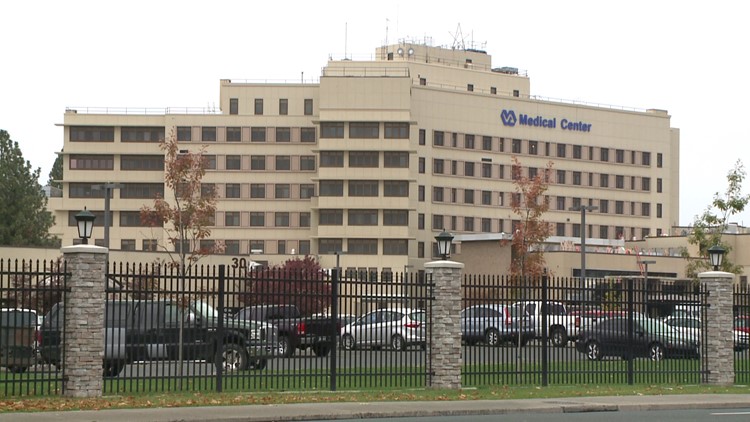SPOKANE, Wash. — Mann-Grandstaff Veteran Affairs Medical Center (VAMC) in Spokane announced Tuesday a delay in opening a 24-hour urgent care center due to an increase in COVID-19 cases in Washington.
Mann-Grandstaff VAMC Public Affairs officer Bret C. Bowers said in a statement that the center will remain committed to the goal of returning the Urgent Care Center to 24 hour service, but due to the resurgence of COVID-19 in the community, resources were shifted from Urgent Care in order to maintain current inpatient and outpatient services.
"Beginning six weeks ago, Mann-Grandstaff VAMC began to see a significant uptick in COVID-19 admissions, including residents from the Washington State Veterans Home," Bowers said. "In addition, the VA Medical Center is providing humanitarian assistance by accepting non-Veteran patients from other regional hospitals."
Eastern Washington Congresswoman Cathy McMorris Rodgers said in a statement that she was "disappointed" by the decision.
“While I appreciate Dr. Fischer and the team at Mann-Grandstaff’s commitment to restoring 24-hour urgent care for veterans in Eastern Washington, I am disappointed by the decision to delay this essential resource,” Rodgers said. "With COVID-19 cases continuing to rise across the state, now is precisely the time we should be working together to expand access to health care services, not limit it."
McMorris Rodgers said this delay doesn't change the mission of helping veterans. Instead, it remains a priority.
"While this delay is unfortunate, it does not change the mission before us," McMorris Rodgers said. "Restoring these critical services for veterans in our communities remains a top priority for me and my staff, and I look forward to continuing our work with VA leadership to get it done as soon as possible.”
Previously in April, the Secretary of the United States Department of Veterans Affairs, Denis McDonough, visited the Mann-Grandstaff VA Medical Center after McMorris Rodgers wrote a letter to McDonough urging him to review the Cerner electronic health record (EHR) system. In her letter, McMorris Rodgers wrote that veterans were not receiving their prescriptions, there was a confusion with the new patient portal, and staff members wanted training on the new program.
During that visit, Fischer said that the VA was expecting to open its doors to a 24/7 urgent care center by the end of 2021 if there weren't COVID-19 outbreaks positive cases.
However, after COVID-19 hospitalizations in Washington dramatically increased, the opening of the center will have to wait until until 2022 after two years full of delays.
"Until such time as Mann-Grandstaff VA Medical Center is able to extend our Urgent Care services, VA recommends Veterans receive after hours care at the nearest 24-hour clinic or Emergency Department," Bowers said.
Contract for electronic health record system signed in 2018
In 2018, former Acting VA Secretary Robert Wilkie announced that the Department of Veterans Affairs had signed a $10 billion contract with Cerner Corporation to transition to a new electronic health record (EHR) system. However, the 24-hour urgent care was postponed, according to electronic records from the Department of Veterans Affairs.
"Go-live at the facility in October 2020 was preceded by several notable events. On March 28, 2020, the facility was scheduled to be the first Veterans Health Administration (VHA) medical center to implement the new EHR. However, on Feb.10, 2020, a VA spokesperson announced the new EHR’s deployment would be postponed, six weeks prior to the intended go-live date, as the new EHR was only '75- 80 percent' ready," the records said.
"In another facility-related report issued April 27, 2020, the Office of Inspector General (OIG) examined VA’s physical and IT infrastructure to determine readiness to proceed with EHR implementation and to identify infrastructure challenges that could impact the overall system deployment schedule," the records said.
The OIG made eight recommendations to address infrastructure-related deficiencies and five recommendations that remained open as of June 29, 2021.



